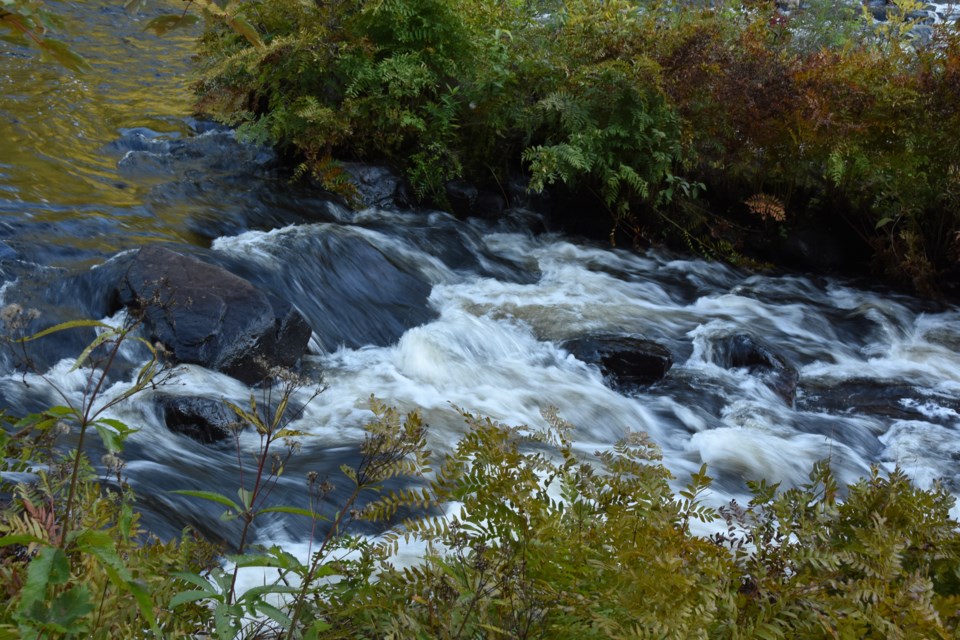I just don't understand the actions and attitudes of some people. Contrariwise, some people just don't seem to understand me. Is this a problem? Should we just ignore each other and not be bothered with trying to understand what in blazes it is that has the other so upset?
When it comes to agreeing on how to look after the natural resources of our land, any disagreement between parties should, indeed must, be addressed. The fresh water, fertile soil, clean air and actual living space that we humans need is in a finite amount.
I hate (OK, really dislike) urban sprawl. The speed and magnitude of housing and commercial property development is staggering. I cringe as streams are turned into rainwater control structures, and forests are chewed up and split into fragments called estate lots. But that's my view.
Another person may look at the situation and say that people have to live somewhere, and supporting product stores and transportation infrastructure have to be built ... you cannot just put a fence around Toronto and say "stay there, sucks to be you." And that person is also bang-on correct.
When it comes to sharing the truly limited resources we have, and to take responsibility for any impacts that we place on the environment, we must first understand and accept that we don't all share the same values and ethics.
In one way or another, each one of us has placed a “value” on the environment. Each is valid, even though they tend to be contradictory at times. There are four choices that people may choose their values from, and they are as follows:
Utilitarian value of the environment is a justification to utilize the resources to provide us with direct economic benefits. In some places that utilization may well be for basic survival; these people feel that the species and habitats are for our use, to allow us to live and grow.
The failure of utilitarian value is that this has become the foundation of our economy. By blindly following the excuse that the water, soil, timber, fish, wildlife, oil, and sand are resources there for us to utilize is proving to be rather short-sighted.
Other people may place an ecological value on the environment, realizing that the inter-relationships of species and the functioning of a healthy ecosystem is what we should be striving for with land management decisions. Their feelings are that these functions are necessary for our survival.
However, here we have the challenge of finding balance between what the natural environment has to offer, against the demands of our billowing population growth.
Other people may take a less scientific view of the natural world around them, placing their values in the aesthetic justification of the environment. Simply put: life is beautiful, don't mess it up.
This may sound simplistic, yet consider the health benefits to those who enjoy sunsets over a lake, the thrill of encountering a deer and fawn, the naturally pleasing pallet of colours presented in a patch of wildflowers. Psychological, medical, and social benefits accrue from the simple pleasure of looking at beauty.
A fourth value set is that of moral justification for preserving the environment. Basically said, the question arises: "What gives us the right to sully the natural world?" Plants and animals have a right to exist, independent of human desires. They believe that it is mankind's obligation to allow other species to live their lives without interference.
So no doubt you can see the potential problems just brewing here. One person says we've got to grow and expand, another says that to do so will upset certain ecological cycles, a third chimes in with a lament that the beautiful scenery will be destroyed, while a fourth claims we have no right to be killing trees.
Gets interesting, doesn't it? Four sets of values, all placed on the same resource, our shared environment. So, who's right? The answer is we all are. So, how do we move ahead? That answer is elusive. Yet seeking the answer is the only route to follow, as we all do indeed share and have value for the air, water, land and wildlife around us.
Can consensus be reached with such a wide range of viewpoints? This dilemma now brings into play the question of ethics. When does prudent preparing for the future cross the line and turn into greed? Which is the better way to live: the ethic of sharing versus hoarding; the ethic of self-preservation versus community health?
As to ethics for land management, the words of the late Aldo Leopold come to mind. He was an American game official and author who seemed to have insight to these challenges even in the 1940s and 50s; the land ethic he espoused was that "we are no longer conquerors of the land but are citizens and protectors of the environment."
His definition suggests that each of us is a steward of the resources available to us, and our collective role as stewards includes the responsibility to sustain nature for ourselves and future generations.
A CBC interview conducted in 1976 with Farley Mowat recently popped up on my Facebook feed ... his topic of discussion being “need versus greed”. His less than encouraging words indicated that he felt the humans were already addicted to greed, and that that attitude is irreversible. Forty-seven years later ... and here we are.
As we boldly and without choice slide into another year, there lies before us a huge challenge: can a solution be agreed upon to ensure that environmental stewardship is enacted? As we are an inherently competitive and confrontational species it will be interesting to see where we stand a year from now.
